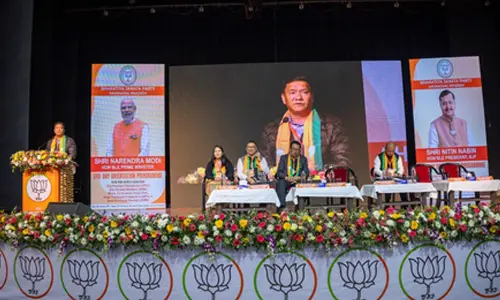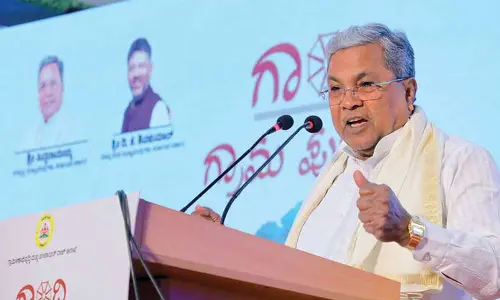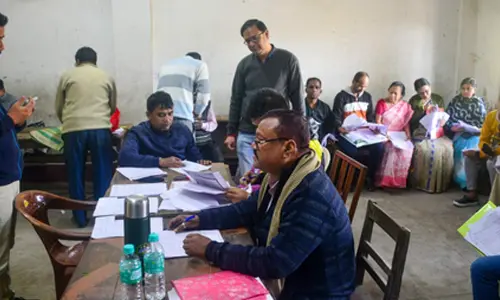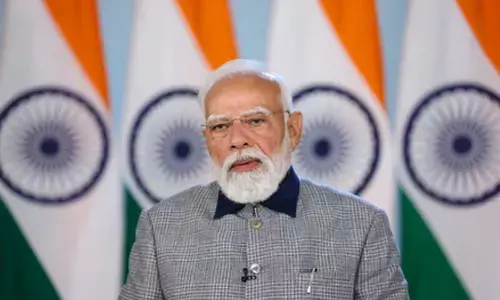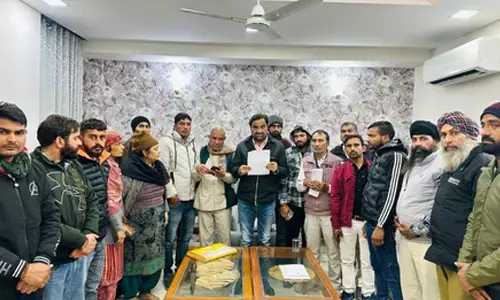New smart traffic light may help reduce, air pollution

Students at Shiv Nadar School here have developed an intelligent traffic light system which they say may not only help reduce commute time but also lower air pollution The system created by four Grade 11 students Shreya Raju, Om Shelat, Ira Sidhu and Soumya Juneja makes the existing traffic light system responsive to realtime traffic intensity
Gurgaon: Students at Shiv Nadar School here have developed an 'intelligent traffic light' system which they say may not only help reduce commute time but also lower air pollution. The system created by four Grade 11 students --- Shreya Raju, Om Shelat, Ira Sidhu and Soumya Juneja -- makes the existing traffic light system responsive to real-time traffic intensity.
It is the first system meant to work on Indian roads and will function accurately keeping in mind the traffic situation in the country, according to a project paper written by the team. "Based on our research, we found that most traffic signals work on preset algorithms and timers that are probably customised for each junction but stay static once configured," Shelat, one of the students, told PTI.
"On close observation, we realised that the lopsided nature of the traffic leads to a large portion of time of the commuters being wasted at each junction," Shelat said. "Using a simple camera and a microcontroller, we now have a way to calculate the amount of traffic present on the road using a camera and then modify the red/green distribution time at each junction dynamically," he said.
As per a recent report released by The Boston Consulting Group, commuters in Delhi, Mumbai, Bengaluru, and Kolkata spend 1.5 hours more than their counterparts in other Asian cities during peak traffic times, the students wrote in the paper. Vehicles are a major contributor to air pollution but after the implication of our project, commuters will spend less time on the roads as compared to earlier due to primitive traffic management system, according to the paper.
The best part about the innovation is that it is compatible with the existing traffic lights, thus cutting down the costs and time required for implementation, the students said. The system will cost only Rs 20,000 as compared to Rs eight lakh spent on other systems, they said. A prototype has been developed and tested in live traffic conditions. It has also been approved for a longer trial by the local authorities, the students said. This system uses a camera to sense the changing traffic patterns around by capturing an image.
The captured image is then sent to a microprocessor, which uses image processing and edge detection algorithms to detect edged black and white pixels. By various real-time observations and analysis under different traffic density scenarios, the students determined the amount of maximum and minimum time required for different traffic densities to clear.








